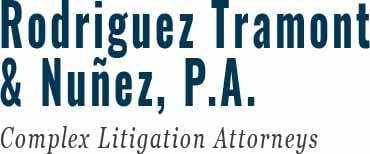Failure to Supervise
Brokerage firms are required to establish policies and procedures designed to comply with FINRA sales practice rules and regulations. The supervisory responsibilities include the development of systems for monitoring compliance of financial advisors with these sales practice rules and regulations: The failure to supervise the following activities of financial advisors is a FINRA sales practice violation. Brokerage firms are required to supervise and monitor:
- Pre-hire screening, including prior customer complaints;
- Outside activities, selling away transactions;
- Communications, including advertising;
- E-mails, websites and social media;
- Account opening process, including holdings received;
- Account activity, including churning/excessive trading
& margin calls; - Account holdings by type, issuer & sector;
- Account performance; and
- Any customer complaints.
FINRA sales practice rules and regulations require that brokerage firms maintain supervisory procedures to safeguard against the complete dissipation of a client’s net worth. The computerized supervisory systems are designed to generate compliance supervisory exception reports to detect significant declines in the brokerage account values.
Branch Manager – Front Line of Investor Protection
The branch manager is the front line of investor protection. Customers should have access to the branch manager to voice any concerns they have about the handling of their brokerage account. Many financial advisors do not encourage an “open door” approach between their customers and the branch office manager. There is a reluctance to involve supervisory oversight of activities in customer accounts over concerns of perception and potential loss of prestige in the customer’s eye. This point of view is not consistent with the best interest of customers who want to know that the brokerage firm personnel can work as a team to provide effective management of their accounts. Direct communication with the branch manager should be encouraged if a customer has questions or concerns that are not addressed.
The supervisory procedures require branch office managers to follow procedures concerning the handling of the exception reports, which are triggered on a monthly basis for any customer account that suffered a certain level of decline. The exception report parameters include account value declines in percentage terms and/or absolute dollars terms on a monthly basis. The branch manager obligations require an investigation as to the factors that caused the decline. The procedures required include contact with the financial advisor, direct contact with the clients through use of compliance approved letters, and direct verbal communication with the clients to determine whether the client understands the risks associated with a particular investment or investment strategy.
If you suffered disproportionate losses in relation to stated investment objectives and risk tolerance and you had no direct contact from the branch manager, there might have been a failure to supervise your account. You are probably asking yourself whether you have a legitimate claim for damages. You are not sure whether a failure to supervise you financial advisor was the direct cause of your losses. To consider whether you are the victim of a supervisory failure, consider the following FAQs.
Frequently Asked Questions:
Q: How do I determine whether I have a viable Securities Arbitration Claim?
Q: I am a retired investor who met with my broker on an annual basis. As my account declined, my visits to the branch office became more frequent as I became concerned about the losses. My concerns were met with the same response, “stay the course.” I could not sleep, so I sold my positions. How could speaking with the branch manager have helped my situation?
The branch office manager has supervisory responsibilities, including the review of account activities. The decline in your account’s value should trigger supervisory reports which bring your account performance to the supervisor’s attention. At a minimum, your investment objectives and risk tolerance should be compared with the transaction history and account holdings to determine whether investment recommendations represented unsuitable investment advice. In situations where there are concerns the branch manager should make direct contact with you to determine whether you understood the risks in your account. In the absence of documentation that these reviews took place there might have been a failure to supervise the handling of your account.
Q: My broker has changed brokerage firms every couple of years for the last decade. I have moved my accounts with him every time he makes a switch to a new firm. When he makes a change he tells me he needs to sell my mutual funds and variable annuities and purchase new products for him to be able to service my investments. Why do I have to continue to purchase new investment products? What can I do?
Some brokers switch employment frequently because they fail to meet the minimum requirements of their brokerage firms. There is pressure to meet similar production requirements at the new brokerage firm. As a result, many financial advisors recommend mutual fund and variable annuity switch transactions to generate new commissions. The regulators addressed these concerns with NASD Notice to Members 07-06 titled, “Supervision of Recommendations after Registered Representative Changes Firms.” The notice provides special considerations when supervising recommendations of newly associated registered representatives who replace mutual funds and variable products in client accounts. The failure to supervise this practice has resulted in violations of FINRA sales practice rules and regulations.
Q: How do I determine whether I have a viable Securities Arbitration Claim?
Take the Following Steps to Begin the Recovery of Your Investment Losses:
- Contact Our Legal Team to complete a Case Facts Summary
- Schedule a time For an Interview with an Industry Expert
- Gather Critical Case Documents
- Complete Risk Tolerance Assessment
- Assess Account Damages and Financial Advisor Misconduct
- File Statement of Claim for Securities Arbitration

